Providence is the capital city of Rhode Island, the smallest of the New England states.
Despite its small size, Providence is one of the most populous cities in the region.
The city combines the cultural and culinary amenities of urban living with small-town charm to make people feel right at home.
If you’re thinking of moving to Providence, you’re in good company as the population has been steadily growing.
Before putting down roots in the Renaissance City, it’s good to learn more about its pros and cons.
Here are some of the basics to get you started.
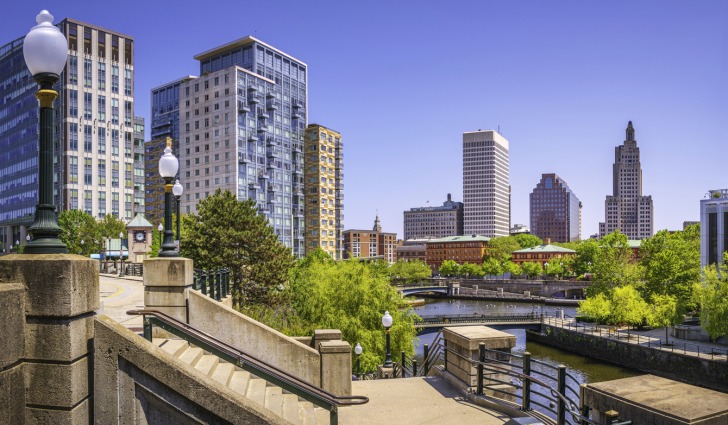
Contents
Pros of Living in Providence, RI
Providence sits at the head of Narragansett Bay on the Providence River.
Approximately 188,800 people call this city home.
Some of the advantages of living in this region are:
1. Thriving Job Market
In a 2020 ZipRecruiter report, Providence was ranked the 4th hottest job market in the country.
Healthcare, education, finance, retail, and technology are some of the fastest-growing industries.
The city houses four Fortune 500 companies along with a number of hospitals and colleges.
Brown University, Thundermist Health Center, and Roger Williams Medical Center are top employers.
Providence Equity Partners and Citizens Financial Group are headquartered in the city and offer positions in finance.
Infosys Digital Studios offers positions in technology and design.
The mean salary in Providence is about $71,000, making this a good place to advance your career.
2. Colleges Galore!
Providence is a great place to further your education and complete your Bachelor’s or Master’s degree.
The Ivy League school of Brown University is one of many prestigious colleges in the city.
Brown University offers over 80 undergrad programs including computer science, economics, engineering, and more.
At Johnson & Wales University, you can study culinary arts, management, education, and psychology.
Providence College is known for its teaching programs and business degrees.
Rhode Island College focuses on health-related studies.
For graphic and apparel design, there’s the Rhode Island School of Design.
3. Reliable Transit System
Though it’s nice to have a car in Providence, you don’t really need one to get around.
Many residents navigate the city by walking or biking.
Affordable and reliable public transport is also available for traveling around town.
Bus routes and schedules are well established, taking the stress out of daily commutes.
There’s also a rail service for traveling to and from the airport and between Providence and Boston.
4. Great Location
From Providence, it’s a mere 45-minute (or less) drive to any other city in the state.
Taking I-95 North, you can reach Massachusetts in about 45 minutes if you drive nonstop.
Driving west on I-195 and US 6, you can reach Connecticut in about 40 minutes.
Boston is a half-hour drive away and New York City can be reached within 3 hours by car.
Amtrak travels from Providence to Philadelphia, Washington, DC, and New York.
You can also fly nonstop from T. F. Green International Airport to dozens of places in the country.
5. Walkable Community
Providence, RI is one of those rare cities that’s good for walking.
In fact, it’s one of the most walkable communities in the country.
Rather than jump in your car for every commute, you can walk to work, local restaurants, parks, or shopping centers.
Many of your daily errands can be completed on foot or by bike.
6. Nary a Dull Moment
There’s much to see and do in Providence for people of all ages.
Providence is home to art galleries, museums, theaters, and parks as well as amazing restaurants, eateries, and bars.
View beautiful works of art at the RISD Museum or check out historical exhibits at the Museum of Natural History & Planetarium.
Visit the Botanical Center, hike the trails, or take a boat ride on the Providence River at Roger Williams Park.
Providence also has a vibrant nightlife that features fine dining, live music, dancing, craft drinks, theater performances, and more!
7. Foodie’s Delight
Foodies will feel right at home in Providence due to its diverse food scene.
Providence is a mix of fine dining restaurants, fast food joints, food trucks, mom-and-pop eateries, trendy cafés, and more!
The city is known for such classic dishes as clam cakes, stuffies, RI-style calamari, clam chowder, hot wieners, and johnny cakes.
For delicious Italian pieces of bread, pastries, and pasta dishes, take time to visit The Hill – Rhode Island’s very own “Little Italy.”
8. Good for Families
Providence has an abundance of safe, friendly neighborhoods suited for families.
Blackstone, Wayland, and College Hill are safe environments with easy access to private schools, parks, and other amenities.
The city also features an array of fun and educational attractions to visit with kids.
There are beaches, amusement parks, a local zoo, a Carousel Village, a Children’s Museum, and more.
Providence is a place where families can enjoy a high quality of life.
Cons of Living in Providence, RI
Although Providence is a unique place to live, it comes with its share of flaws.
Here are some of the cons of living in this New England town:
1. It’s Expensive!
Providence is a costly place to live compared to other cities around the country.
The cost of living here is around 19% higher than the U.S. average.
Basics like food, utilities, and transport cost more than the national average.
Typical home prices are around $400,000+ and rising.
Then there’s the cost of heating in winter, which can be considerable due to the frigid climate.
A well-paying job or retirement income is a must to live comfortably in this city.
2. High Taxes
If you move to Providence, plan on adding a bunch of taxes to your budget.
Like many states, Rhode Island has a sales tax on practically all that you buy.
Then there’s a retail sales tax on personal property sold.
Add to that a property tax and vehicle tax if you own a home or car.
Retirees with high earnings may be taxed on their Social Security and retirement income as well.
A high tax load can put a strain on your budget.
3. Dense Population
Providence is densely populated for a city its size.
In addition to local residents, there are thousands and thousands of students to contend with annually.
With so many people living in such close quarters, the city will be busy all the time.
You may have to put up with crowded restaurants, shops, streets, and attractions.
During festivals or holidays, it may be hard to find a quiet nook to spend time with your significant other.
4. Heavy Traffic
A dense population also leads to heavy traffic.
A city as crowded as Providence is bound to have traffic problems.
Traffic jams are normal, especially during rush hour traffic or on streets with road construction.
Congested traffic on I-95 or other local routes will add more time to your daily commute.
Having a traffic app can help you avoid trouble spots on the road.
5. Poor Public Schools
Providence has a number of exceptional private schools offering K-12 grade education.
The city’s public schools, however, leave much to be desired.
The standard of education in many public schools is sorely lacking.
Low test scores and chronic absenteeism are major problems.
Some schools have been closed due to lack of funding and low enrollment.
Until circumstances change, private schools are your best option for educating your children.
6. Increased Poverty
Poverty is a growing problem in Providence, affecting almost a quarter of the population.
The poverty rate in Providence is an alarming 22.98%, compared to a 10-13% national average.
Many of the city’s impoverished communities are in South Providence.
Approximately 78% of low-income residents are people of color.
Racial disparity and economic equality are still a work in progress.
7. High Crime Rate
Crime is another deterrent to moving to Providence, RI.
The crime rate in Providence is 24% higher than the U.S. average.
Over the years, the city has seen a spike in violent crime.
Like most cities, there are safe and non-safe areas where crime is more likely to occur.
Some of the most dangerous neighborhoods are Lower South Providence, Hartford, and Olneyville.
It’s advisable to avoid unsafe areas and use caution when out alone or after dark.
8. Brutal Winters
Providence winters are cold and snowy, with temperatures well below freezing.
Snowfall averages about 35 inches annually.
Adjusting to brutal winter weather can be difficult for people coming from the South.
Severe winter weather can cause school and/or business closures and keep residents indoors.
Not everyone has what it takes to deal with months of snow, wind, and ice.
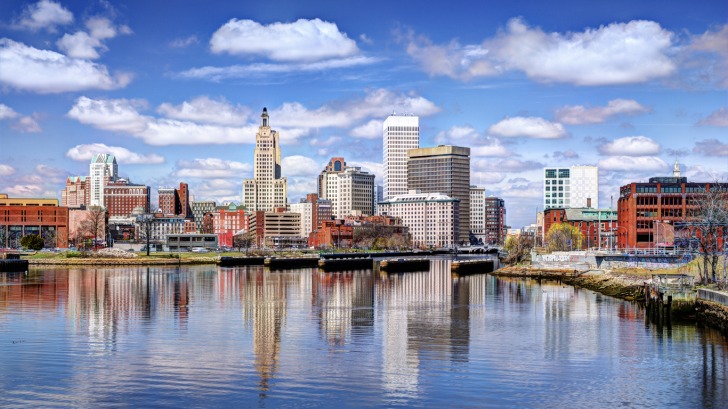
Pros and Cons of Living in Providence, RI – Summary Table
| Pros of Living in Providence, RI | Cons of Living in Providence, RI |
|---|---|
| 1. Thriving Job Market | 1. It’s Expensive! |
| 2. Colleges Galore! | 2. High Taxes |
| 3. Reliable Transit System | 3. Dense Population |
| 4. Great Location | 4. Heavy Traffic |
| 5. Walkable Community | 5. Poor Public Schools |
| 6. Nary a Dull Moment | 6. Increased Poverty |
| 7. Foodie’s Delight | 7. High Crime Rate |
| 8. Good for Families | 8. Brutal Winters |
Providence Safety Overview
READ THE FULL REPORT: Providence Safety Review
Safety Index:
- OVERALL RISK: LOW
- TRANSPORT & TAXIS RISK: LOW
- PICKPOCKETS RISK: LOW
- NATURAL DISASTERS RISK: LOW
- MUGGING RISK: LOW
- TERRORISM RISK: LOW
- SCAMS RISK: LOW
- WOMEN TRAVELERS RISK: LOW
Frequently Asked Questions
Is Providence, RI a good place to live?
Providence is a culturally rich community where economic and academic opportunities abound.
The city offers many of the amenities of larger metropolitan areas while still retaining its small-town charm.
It’s a place where young professionals, families, and retirees can enjoy a high quality of life.
Are there options for higher education in Providence, RI?
Providence is home to eight colleges and universities including the Ivy League school of Brown University.
Rhode Island College, RI School of Design, Johnson & Wales University, and URI (Providence Campus) also call Providence home.
Students will have no trouble receiving the quality education they need to kickstart their careers.
What kind of jobs are available in Providence, RI?
Providence has a thriving economy fueled by healthcare, education, finance, and other industries.
Textron, Citizen’s Financial Group, United Natural Foods, Brown University, and Roger Williams Medical Center are top employers.
Depending on your professional interests, Providence is a good place to kickstart or advance your career.
Do I need a car to get around in Providence, RI?
Although it’s great to have a car, Providence’s compact size makes it easy to get around on foot or using a bike.
City buses and a rail system also provide safe and efficient transport throughout the city and beyond.
Is Providence a good place for families?
Safe neighborhoods and top-notch private schools make Providence an attractive place to raise a family.
Your kids will love exploring local parks, playgrounds, and beaches and visiting fun-filled attractions like the Children’s Museum and Roger Williams Zoo.
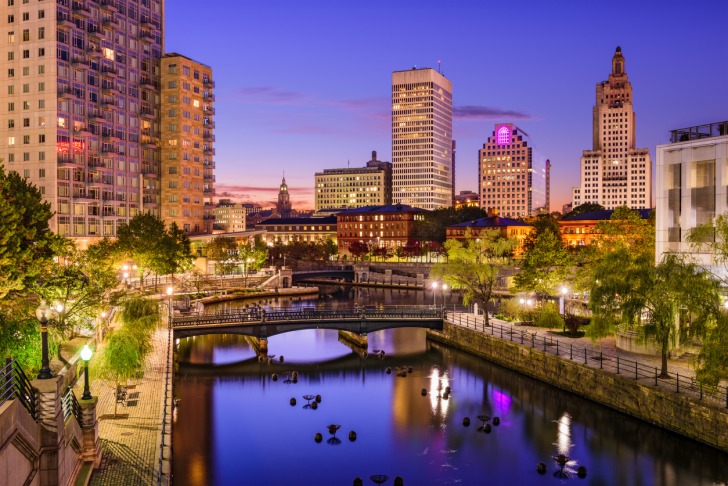
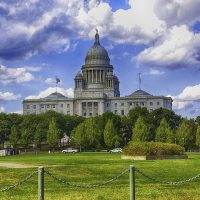
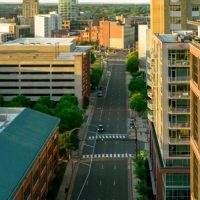

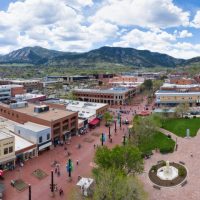
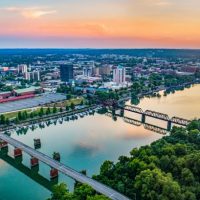






Providence, RI offers a thriving job market and great location for those looking to advance their career or further their education, but it also comes with high costs of living and taxes as well as issues such as dense population, heavy traffic, poor public schools, poverty and crime rates.